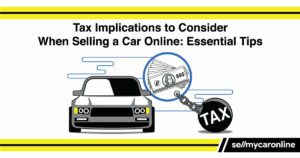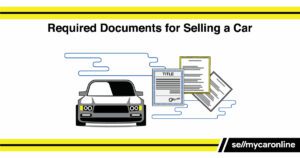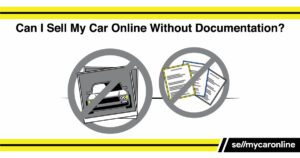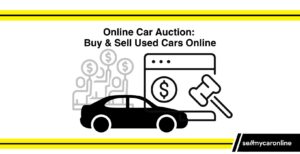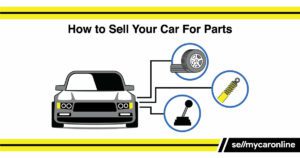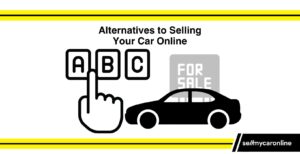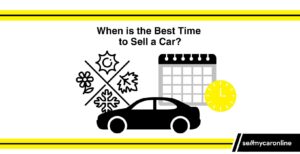Sell My Car Online
The Express Lane to Sell Your Car For Cash
Turbocharge the process of getting rid of your car with Sell My Car Online's express lane to sell any vehicle for cash.
Get a free quote and sell your car for top dollar as soon as today.
What Are The Steps to Sell My Car Online?
There are 3 steps to Sell My Car Online. The 3 steps are getting a quote, scheduling removal, and getting paid. The 3 steps to Sell My Car Online are listed below.
1. Get a Quote
Let us know about the vehicle you are selling and we'll give you an instant offer, valid for 5 days.
2. Schedule Removal
Schedule a day and time to have your vehicle removed and transfer ownership.
3. Get Paid
Get paid cash on the spot to sell your car online in as little as 2-48 hours.
Why Sell My Car with Sell My Car Online?
Experience an accelerated process and sell your car right from your phone with Sell My Car Online.
Simply input your vehicle details, and instantly an auction unfolds among our network of reputable car buyers, each eager to present their best offer based on our competitive bidding model. Our extensive network guarantees you'll receive your highest offer to sell your car with free vehicle collection.
Fuel your wallet and turbocharge the sale of your car in as little as 24-72 hours with your money payment on the spot without the speed bumps.
Fasten your seatbelt for a high-speed car selling experience with Sell My Car Online - the express lane to sell your car.
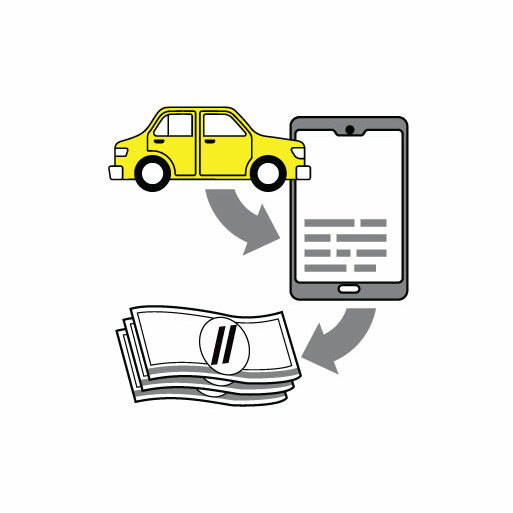

What is online car selling?
Selling a car online has grown in popularity because of the expanded reach it allows sellers. Online car selling allows you to get instant offers to sell your car online or list your car for sale to potential buyers on various platforms without leaving the comfort of home.
Instead of limiting yourself to local car buyers, selling a car online expands your reach which increases your vehicles value. Online car selling platforms have made it near effortless to sell your car. Sell My Car Online is the express lane to sell any car for cash.
Forget about the hassle of dealing with tire-kickers and hagglers in the traditional car selling process. Online car selling simplifies the transaction while offering you more control and convenience.
What are the benefits of selling a car online?
Selling a car online offers several advantages over traditional car selling methods. One of the most significant benefits is the ability to reach a much larger audience, as online platforms connect you with potential buyers from all over the country or even the world. This expanded reach can lead to increased competition among buyers, potentially resulting in higher sale prices.
Additionally, selling a car online offers several advantages over traditional methods.
- It is often faster and more convenient.
- Online platforms streamline the transaction process, reducing the time and effort required from the seller.
- You don’t need to arrange meetings or interact directly with potential buyers, offering a level of convenience that’s hard to match in traditional car sales.
What Types of Vehicles Can I Sell Online?
Any vehicle type can be sold online. This includes cars that do not run. The most popular vehicle types that are sold online are cars with blown engines, cars that do not run, cars with high mileage, old cars, and used cars that are no longer wanted.
The vehicle types that can be sold online are listed below.
What is Sell My Car Online?
Sell My Car Online is the express lane to sell any car for cash. Sell My Car Online was founded by a group of friends and car nuts as a way to provide car owners with a greater avenue to sell cars online. Through an expansive network of car buyers, Sell My Car Online is able to get you your best offer instantly.
Sell My Car Online is the best way to sell a car online by making the process rewarding.
Who is Sell My Car Online For?
Sell My Car Online is for anyone looking to sell a car in the United States. Get an instant, no-hassle offer to sell your car, you've nothing to lose.
What Areas Does Sell My Car Online Service?
We buy cars online in the entire continental United States. Popular locations for online car selling are:
What Do I Need to Sell My Car Online?
To guarantee a seamless and legal transaction, several key documents are required when selling a car online. The most crucial document is the vehicle title, which serves as the legal proof of your ownership. Additionally, you’ll need the vehicle registration to demonstrate the car’s current registration status.
Maintenance records and repair documentation can provide potential buyers with added assurance about your car’s condition and history. To transfer ownership, you’ll need to create a bill of sale, which outlines the details of the transaction and serves as a legal record of the purchase.
It’s crucial to have these documents ready and organized before listing your vehicle to avoid delays and complications during the sale process.
How long does it take to sell a car with Sell My Car Online?
It can take 48 hours up to a few days to sell a car with Sell My Car Online. The total time is mainly determined by the availability of the buyer for the pickup of the vehicle.
What payment options does Sell My Car Online offer?
We offer several payment options to make the process as fast and convenient as possible for you. You can receive payment via electronic transfer, PayPal, or cash. Simply choose the option that works best for you.
How do I get a Quote to Sell My Car Online?
You can get a free quote to sell your car online with Sell My Car Online by visiting our vehicle valuation page or calling us directly at (855) 397-7771.
What if I change my mind after getting a quote?
There's no obligation to sell your car when you get a quote from Sell My Car Online. If you change your mind, simply let us know and we'll cancel the process. We're committed to transparency and honesty, and we want you to be completely satisfied with your experience.
How to Get The Best Price to Sell My Car Online
To get the best price to sell a car online get offers from numerous car selling platforms. The best part of online car sales is the expansive network of car buyers. Shop around and get offers to see who gives the best price to sell a car online.
What is the Best Way to Sell My Car Online?
The best way to sell a car online is largely subjective to personal preference. Factors like price, service, and ease of use rank highly in determining the best way. With that said, Sell My Car Online provides an exceptional and rewarding experience which makes us the best way to sell a car online.
What is the best site to sell my car online?
The best site to sell your car on is ultimately a personal preference. With that said Sell My Car Online is the express lane for selling a car for a reason. Lighting fast offers, speedy transaction, and instant payment on the spot.
How Can I Sell My Car Online For Free?
To sell a car online for free avoid using listing platforms and instead get instant offers. Websites that provide instant offers to sell cars online do not charge for the service. When you list a car for sale on a website you will likely be required to pay a fee to do so.
How can I prepare my car for sale online?
Preparing your car for sale online can help attract potential buyers and increase your chances of getting a good price. Here are six steps you can take to prepare your car for sale.
- Clean and detail your car
- Make any necessary repairs
- Check fluid levels
- Check the tires
- Gather maintenance records
- Take good photos
By following these steps, you can present your car in the best possible light and increase your chances of finding a buyer quickly and at a good price.
Does Sell My Car Online Pickup My Vehicle?
Yes, Sell My Car Online provides a free pickup and collection service for sold vehicles through our vehicle collectors.
How much can I sell my car for online?
The online selling price of your car hinges on multiple variables including its age, condition, and the current market demand. While you may have a ballpark figure in mind, it’s essential to research and utilize online car valuation tools to determine an appropriate asking price. Platforms like Driveway can help you estimate your car’s value by considering factors like the license plate number, vehicle’s vin, make and model, trim and features, and the condition of the car.
However, bear in mind that your car’s final selling price will be determined by negotiations with potential buyers. It’s essential to be prepared for price negotiations and to have a clear understanding of the minimum amount you’re willing to accept for your vehicle. By doing your research and setting a fair price, you’ll maximize your chances of a successful online car sale.
Are online car valuation tools accurate?
Although online car valuation tools can give you a rough estimate of your car’s value, it’s worth noting that they might not factor in specific elements influencing your vehicle’s worth. These tools gather data on similar vehicles sold in your area and consider factors such as the vehicle’s condition, location, and current market demand to generate an approximate value.
To ensure you’re setting a fair and accurate price for your car, it’s best to use online car valuation tools as a starting point. Consider utilizing multiple valuation tools and comparing the results to obtain a more precise estimate. Additionally, research similar vehicles for sale in your area and take note of their asking prices. This will give you a better understanding of the market and help you set a competitive price for your vehicle.
Can I negotiate the sale price when I sell my car online?
The possibility of price negotiation when selling your car online is contingent on the platform and the buyer. Some platforms offer fixed prices, meaning there’s no room for negotiation. However, in many cases, online car selling platforms allow for negotiations between the seller and the buyer, providing an opportunity for both parties to reach a mutually agreeable price.
When negotiating with a potential buyer, it’s essential to be prepared with information supporting your asking price, such as recent maintenance or upgrades, as well as comparable listings in your area. Be open to counteroffers and willing to compromise, but also know your bottom line and be prepared to walk away if the buyer’s offer doesn’t meet your minimum requirements.
Online Car Selling Fundamentals
Stay up to date with everything there is to know about selling a car online.






